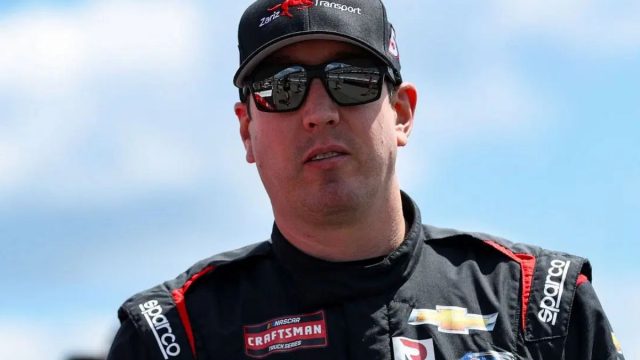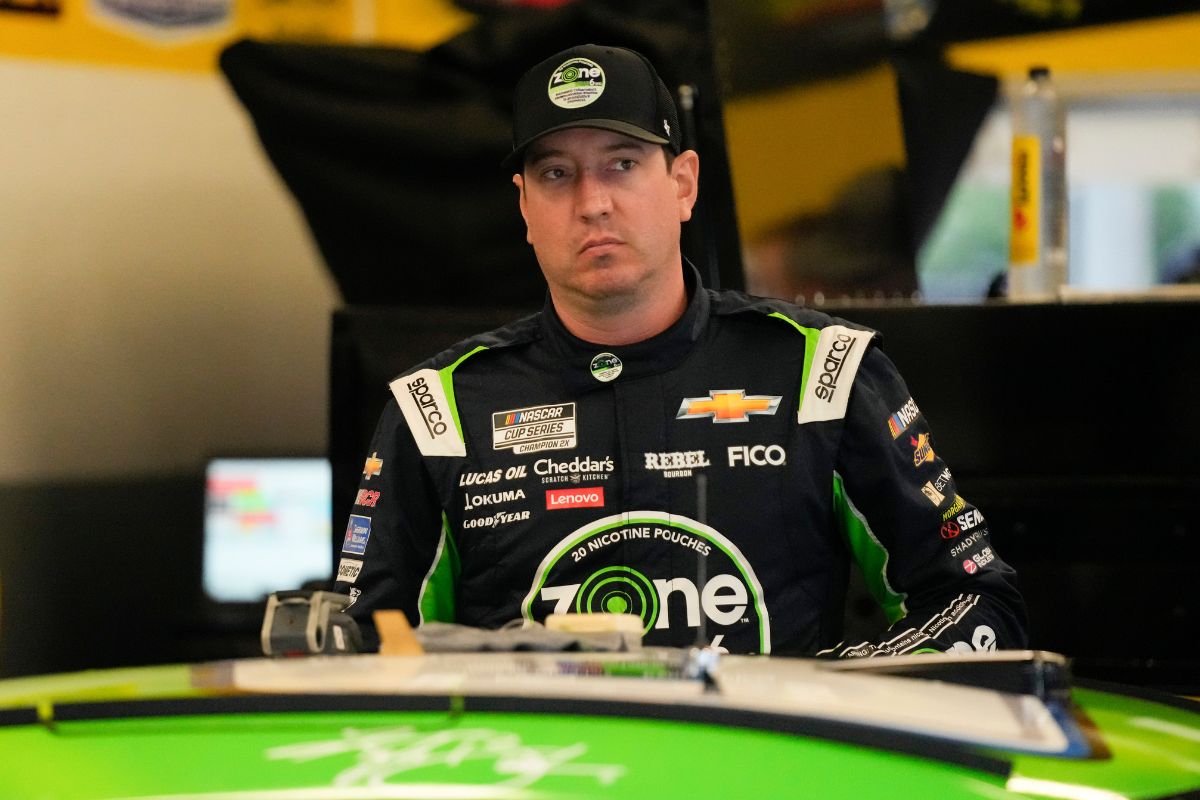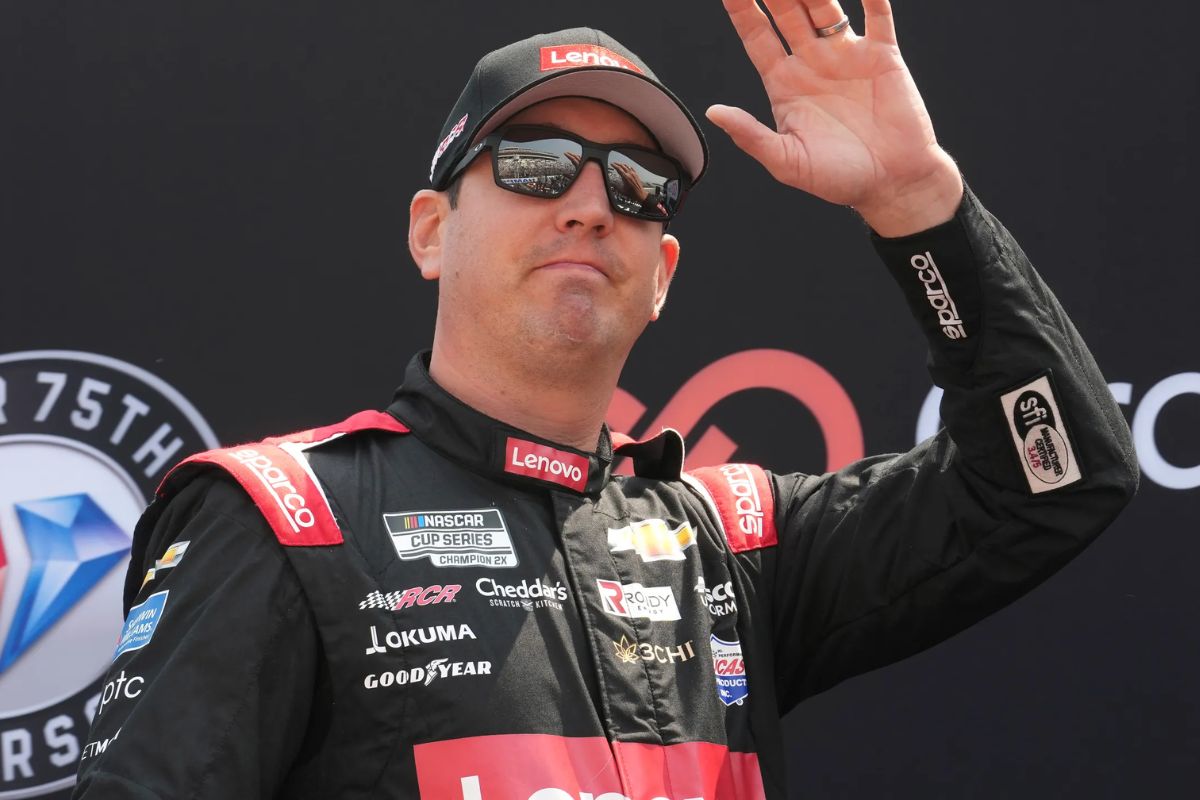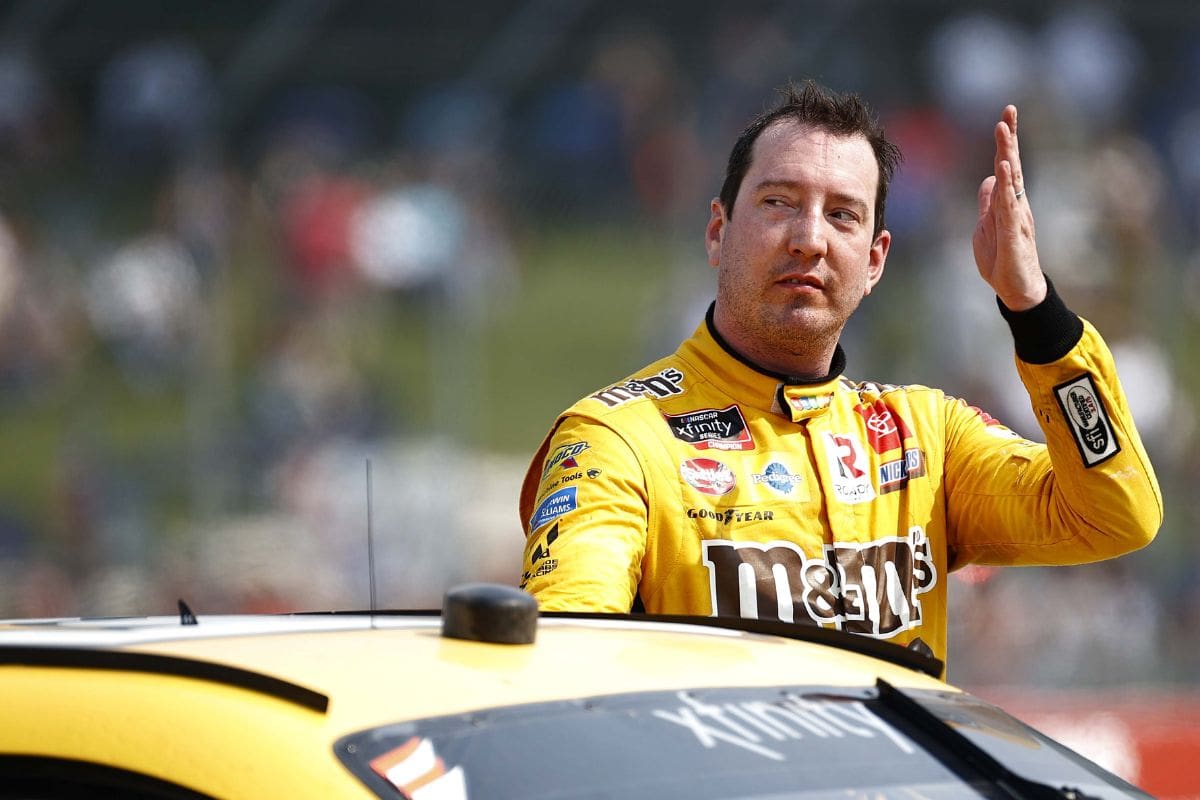Kyle Busch’s Social Media Rant: In the aftermath of a disheartening finish at Talladega Superspeedway, Kyle Busch on social media not only underscored his own frustrations but also cast a spotlight on the broader implications of the Next Gen cars in NASCAR’s competitive landscape. His candid outburst raises pertinent questions about the intersection of athlete psychology, vehicle performance, and the pressures of motorsport.
Key Takeaways
- Kyle Busch expressed frustration over his 27th-place finish at Talladega on social media.
- He criticized the Next Gen cars for limiting strategic flexibility.
- Busch highlighted the technical challenges that affected his race performance.
- His comments reflected a clash between safety innovations and traditional racing values.
- Busch called for adjustments to the Next Gen cars to improve racing dynamics.
Kyle Busch’s Disappointing Finish at Talladega
At Talladega Superspeedway, Kyle Busch’s aspirations for a season-first victory in GEICO 500 were dashed by an unexpected incident, resulting in a disappointing twenty-seventh place finish. Entering the race with a strong track record, including a victory in the same event last season, Busch’s performance expectations were significantly high. His qualifying position, just three spots away from the pole, further underscored his potential for success in this race.
The incident, which remains unspecified in detail, clearly had a profound impact on Busch’s race strategy and outcome. Typically, races at Talladega are unpredictable due to the track’s notorious reputation for high-speed, multi-car accidents which can alter race dynamics instantaneously.
This result contrasts with his previous performances at Talladega, where he has demonstrated the ability to capitalize on the track’s unique demands. The twenty-seventh place finish not only affected his standing in this particular race but also has broader implications for his season’s trajectory. Each race in the Cup Series contributes to the accumulation of points that determine playoff eligibility and positioning, making every setback significant.
Next Gen Car Woes
Despite a promising start, Kyle Busch’s frustrations with the Next Gen cars were evident after a significant error led to his dismal finish at Talladega. Initially performing well, Busch’s race took a downturn due to a critical mishap in the latter stages.
The Next Gen cars, introduced to revamp NASCAR’s competitive environment and improve safety, have been a mixed bag for drivers. While aiming to provide closer racing and more manufacturer relevance, the cars have faced criticism, particularly in how they handle on superspeedways like Talladega.
Technical nuances of the Next Gen car, such as changes to the chassis and aerodynamics, are intended to create a more level playing field. However, these alterations require drivers to adapt their strategies and techniques, which can lead to errors and miscalculations during critical phases of the race. Busch’s drop from a top-five position to 27th spotlights the potential for small errors to have amplified consequences, possibly due to the car’s handling characteristics or mechanical reliability issues under stress.
Kyle Busch’s Frustration with Next Gen Cars
Kyle Busch’s frustration with the Next Gen cars reached a boiling point following his latest race at Talladega, as evidenced by his criticism on social media. On his X account, Busch expressed frustration with the strategic rigidity imposed by the Next Gen cars. This comment underscores a broader dissatisfaction that has been brewing among drivers, but is particularly poignant coming from a seasoned competitor like Busch.
Ride in line=finish where u r
TRY to race for win=finish lastI hate these 🤬 cars!!!
— Kyle Busch (@KyleBusch) April 21, 2024
Busch’s frustration lies in the tactical limitations he perceives the Next Gen cars impose on racing dynamics. His remark sheds light on a dualistic problem: maintaining position versus aggressive racing for a win. The Next Gen cars, designed for improved safety and cost efficiency, have also introduced a new set of racing dynamics that some drivers find restrictive. Busch’s criticism suggests a feeling of constraint, where attempts to alter race outcomes through aggressive maneuvers are penalized rather than rewarded, leading to a paradoxical situation where strategic stagnation seems incentivized.
“With these cars and the way the race plays out, it’s so hard to make moves. Make passes and get yourself track position whenever you want it. You can’t, so you’ve got to hold it when you’ve got it. So, I guess that’s kind of been a bit of my demise. Which is I don’t feel like I can do as much as I want to be able to do. Me overtrying has sort of hurt my race craft, if you will and (why) I haven’t been finishing, frankly.” -Busch
This sentiment reflects a deeper narrative in NASCAR’s shift to the Next Gen cars, indicating a clash between innovation aimed at safety and sustainability, and the traditional racing ethos that champions risk and maneuverability.
Busch’s Struggles with Next Gen Cars
The introduction of the Next Gen cars has greatly affected Kyle Busch’s performance, as evidenced by his performances and frequent finishes outside the Top-15. Despite a storied career marked by consistent top-tier finishes and championships, Busch has struggled to adapt to the dynamic and technologically advanced specifications of the new vehicle model introduced in 2022. This shift represents a significant challenge even for veteran drivers, disrupting their established driving styles and strategies.
Analyzing Busch’s performance, it is clear that the adjustment process is ongoing. With only six wins since the introduction of Next Gen cars, and a particularly tough 2024 season thus far, Busch’s experience underscores a broader narrative of adaptation facing seasoned drivers. His two Top-5 placements in twelve races this year, coupled with seven instances of finishing outside the Top-15, highlight a inconsistency between driver expectation and vehicle performance.
The technical variations of the Next Gen cars, which include changes in car symmetry, weight distribution, and tire behavior, require drivers to recalibrate their approach to racing and car setup. For Busch, a driver known for his aggressive and intuitive driving style, the transformation necessitates a reevaluation of these instinctual responses to the track.
Looking ahead, the upcoming race at Dover International Speedway presents a pivotal juncture for Busch to possibly recalibrate and harness the potential of the Next Gen car. His determination to turn the season around is palpable, and Dover might just serve as the catalyst for this much-needed resurgence in his performance.
News in Brief: Kyle Busch’s Social Media Rant
The analysis drawn from Kyle Busch’s post-Talladega social media outburst highlights the profound impact that race outcomes have on professional drivers. His public expression of frustration shows a broader discussion on the challenges posed by Next Gen cars in NASCAR racing.
These episodes not only reflect the emotional investments of athletes in their performance but also serve to engage the fan community in the ongoing dialogue about the evolution of racing technology and its implications for the sport.
Our Reader’s Queries
Q. What happened to Kyle Busch Motorsports?
A. On September 27, 2023, Spire Motorsports made headlines by acquiring KBM’s assets, marking a significant move in the motorsports industry. The announcement included the suspension of operations at the season’s end, affecting not only the team but also Busch’s manufacturing venture, Rowdy Manufacturing. Fast forward to February 2024, and KBM made waves once again, this time initiating legal action against Rev Racing for alleged breach of contract. These developments underscore the dynamic and often contentious nature of the sport, prompting avid followers to closely monitor the unfolding events.
Q. Who is Kyle Busch’s sponsor?
A. In an exciting development for the 2024 NASCAR season, Zone Nicotine Pouches has joined forces with Rebel Bourbon and Global Industries as primary sponsors for Busch. This strategic partnership highlights the continued evolution of Busch’s racing endeavors as he embarks on his second season with Richard Childress Racing. With three impressive victories under his belt from the previous season and a solid 14th-place finish in the NASCAR Cup Series championship standings, Busch’s performance on the track is poised to captivate fans and competitors alike.
Q. Why did Kyle Busch get dropped?
A. In 2023, Kyle Busch experienced a notable decline, partly attributed to NASCAR’s meticulous oversight. The preceding year, 2022, was a rollercoaster for Busch, marked by significant emotional highs and lows. His announcement of a surprising departure from Joe Gibbs Racing to Richard Childress Racing at season’s end sent shockwaves through the NASCAR community, setting the stage for a transformative chapter in his career.
Q. Did Kyle Busch lose a sponsor?
A. Throughout his remarkable 15-year tenure at JGR, Mars, Inc., notably through its M&M’s brand, served as Kyle Busch’s steadfast anchor sponsor. However, the landscape shifted when, ahead of the 2022 season, Mars, Inc. announced its decision to withdraw its support. This unexpected development left JGR scrambling to secure a suitable replacement, highlighting the intricate dynamics of sponsorship in NASCAR.
ALSO READ: Kyle Busch’s Fiery Talladega Rant Gets Backup From Denny Hamlin



